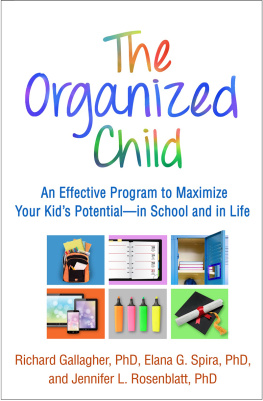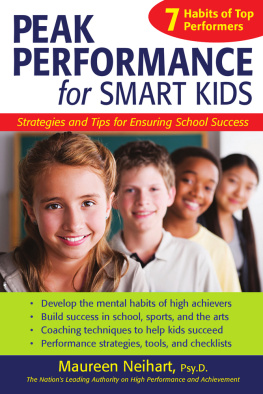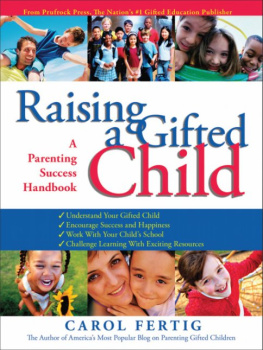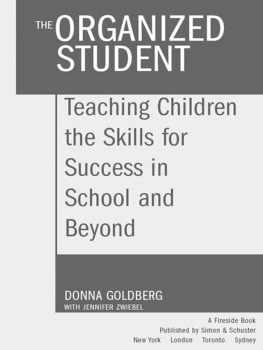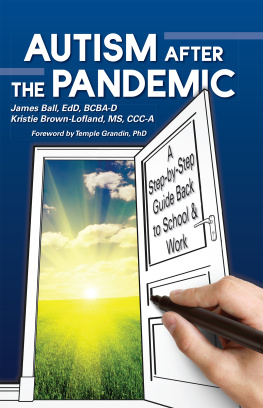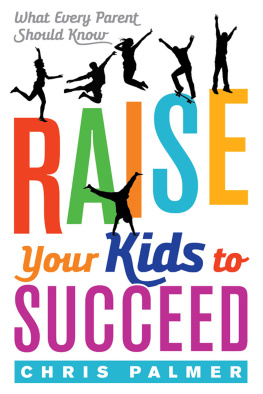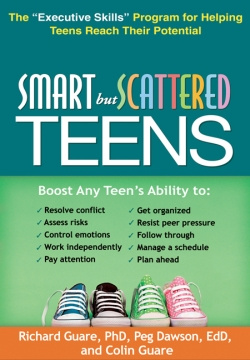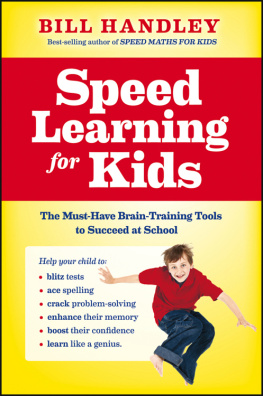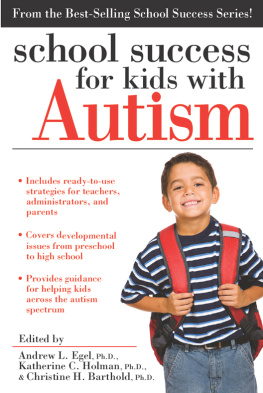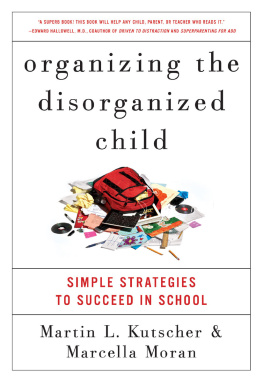For Professionals
Organizational Skills Training for Children with ADHD: An Empirically Supported Treatment
Richard Gallagher, Howard B. Abikoff, and Elana G. Spira
The Organized Child
An Effective Program to Maximize Your Kids Potentialin School and in Life

Richard Gallagher, PhD
Elana G. Spira, PhD
Jennifer L. Rosenblatt , PhD

THE GUILFORD PRESS
New York London
Epub Edition ISBN: 9781462533213; Kindle Edition ISBN: 9781462533220
Copyright 2018 The Guilford Press
A Division of Guilford Publications, Inc.
370 Seventh Avenue, Suite 1200, New York, NY 10001
www.guilford.com
All rights reserved
The information in this volume is not intended as a substitute for consultation with healthcare professionals. Each individuals health concerns should be evaluated by a qualified professional.
Purchasers of this book have permission to copy handouts and forms, where indicated by footnotes, for personal use or use with individual clients. These handouts and forms may be copied from the book or accessed directly from the publishers website, but may not be stored on or distributed from intranet sites, Internet sites, or file-sharing sites, or made available for resale. No other part of this book may be reproduced, translated, stored in a retrieval system, or transmitted, in any form or by any means, electronic, mechanical, photocopying, microfilming, recording, or otherwise, without written permission from the publisher.
Last digit is print number: 9 8 7 6 5 4 3 2 1
Library of Congress Cataloging-in-Publication Data is available from the publisher.
ISBN 978-1-4625-2591-1 (paperback) ISBN 978-1-4625-3249-0 (hardcover)
Contents
Part I
|
|
|
|
Part II
|
|
|
|
Part III
|
|
|
|
|
Part IV
|
|
|
|
Purchasers of this book can download and print a supplementary appendix (Creating Your Own Planner through a Print Shop) and additional copies of select handouts and forms at for details).
If you are picking up this book, odds are that you dont need to be sold on the importance of organizational skills for your childs school success (and for your familys harmony). Theres a good chance youve sat up until the early hours with a panicked child trying to cram a months worth of report writing into one night. Youve likely banged on locked school doors long after the lights have been turned out, hoping someone can let you in to retrieve a forgotten but critically important book or paper. You may have resigned yourself to the nightly routine of texting classmates parents to find out that days homework. Youve bought new organizational supplies; youve tried to teach your child new methods for organizing; youve probably lectured. And nothing has worked. You may have started to feel defeated, like youve become that nagging parent you never wanted to be. You probably feel pretty bad.
So lets spend the next few minutes making you feel worse.
(Stay with us, though. It may be a bit early for you to trust us, but the entire remainder of this book is dedicated to making you feel betterwe promise!)
The bad news: This situation probably isnt going to get better on its own. We have been engaged in research for well over a decade with students who have organizational problems, and one clear finding is that these kids are different. While exposure to a few simple organizing tips and to some good modeling of organized behavior is enough to help most kids pick up sufficient organizational skills, a subset of kids have true difficulties in this area. Much in the same way some students may be brilliant in English but need remedial help in math, these kids are not able to develop organizational skills as easily as their peers.
The worse news: As these kids move through school, on to college, and into their careers, these problems are likely to become bigger and more significant. As they age, organizational demands and expectations increase, and whatever coping mechanisms they have developed to help them through will probably become less and less effective.
So now we move on to the good news, and we dont look back. The research program we have been involved with, under the direction of Dr. Howard Abikoff and Dr. Richard Gallagher, has been focused on understanding the exact kind of help these kids need to learn effective organizational skills. We have answers, and the purpose of this book is to share these answers with parents. We want to help you become the organizational skills coach your child needs.
Unlike many organizational programs on the market, this book is deeply rooted in hard science. It is based on the Organizational Skills Training (OST) program developed at the Child Study Center at New York Universitys Langone Medical Center, through one of the largest programmatic research efforts on organizational skills deficits in the world to date. This research focused on children with attention-deficit/hyperactivity disorder (ADHD), who often suffer from the most severe organizational challenges. Through close, repeated observation, weve identified a number of principles that are not typically part of the instruction on organizational skills given in schools, but that have worked particularly well for children with organizational deficits. Youll see these principles reflected throughout this book:
1. Removing blame. We look at organizational skills challenges as true skill deficits, not reflections of laziness or poor work ethic. We externalize these problems by placing blame on a series of characters we call Glitches (youll read more about these later). Using this framework helps motivate kids by making the tone more positive and constructive.
2. Turning long-term rewards into short-term rewards. Kids with organizational skills deficits often have a style of thinking and behaving that favors short-term rewards over long-term rewards. We take advantage of this by putting short-term rewards in place for organized behaviors (for example, awarding a point for correctly writing down homework assignments in a given day) that would otherwise receive only long-term rewards (for instance, getting a good grade at the end of the semester because all homework was turned in).
3. Taking one step at a time. We recognize that organizing requires a large number of subskills (everything from keeping papers organized to planning for a long-term assignment), and that even if a child is making improvements in one area, most of the attention usually goes to the area in which hes had his latest screw-up. We take one skill at a time, and focus on praising and encouraging that skill, regardless of whats going on in the areas we havent tackled yet.
4. Offering methods that work for these kids . While a kid without organizational skills deficits may do fine with a complex system of sections and subsections in a three-ring binder, we focus on tools and routines that our research has shown to be effective for kids struggling with organization. These are usually things that are quick, simple, and easy to use.
5. Practicing. For other kids, you may be able to show them an organizational routine just once, but these kids need repeated practicean essential component of our program.
Next page
